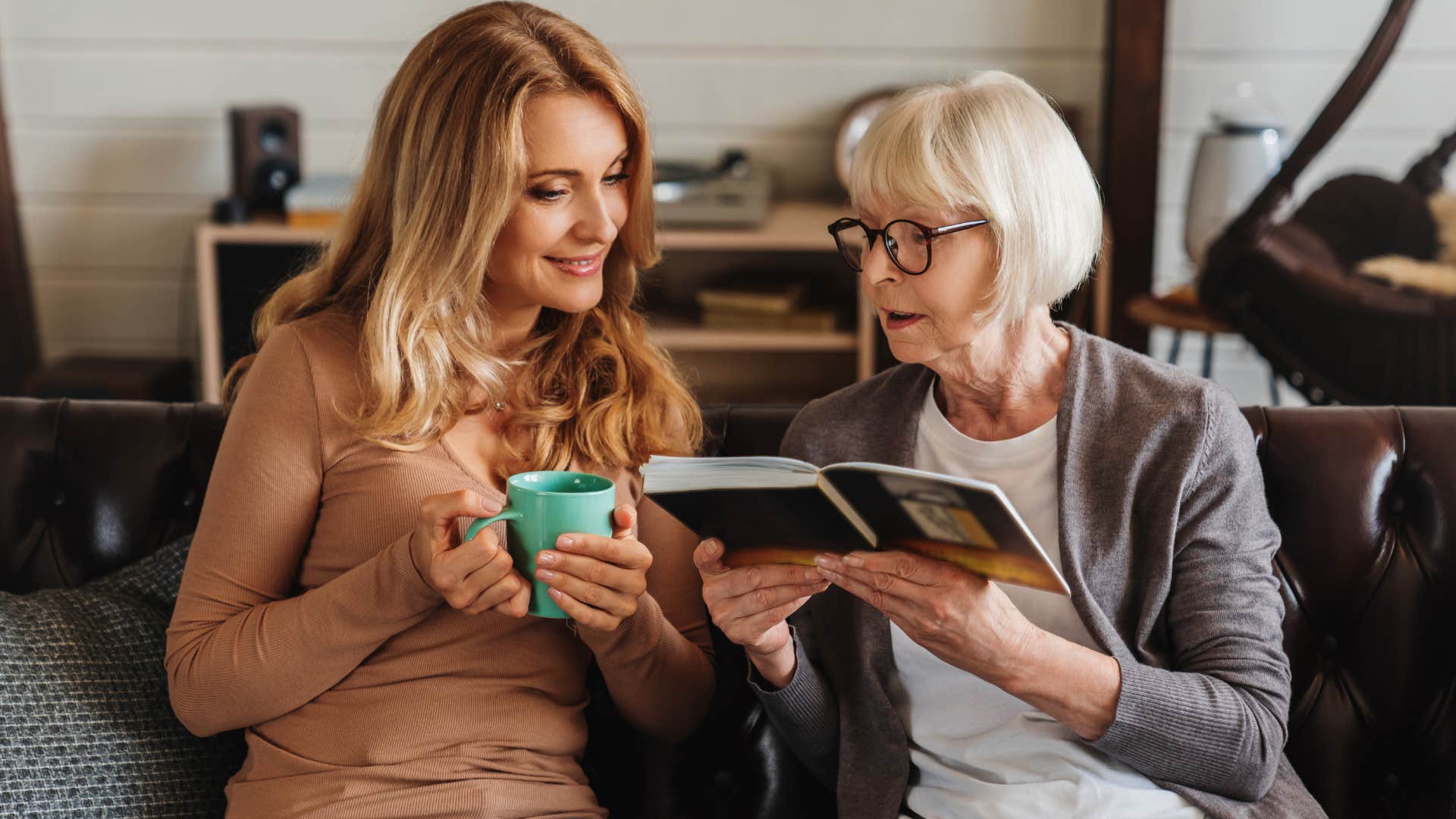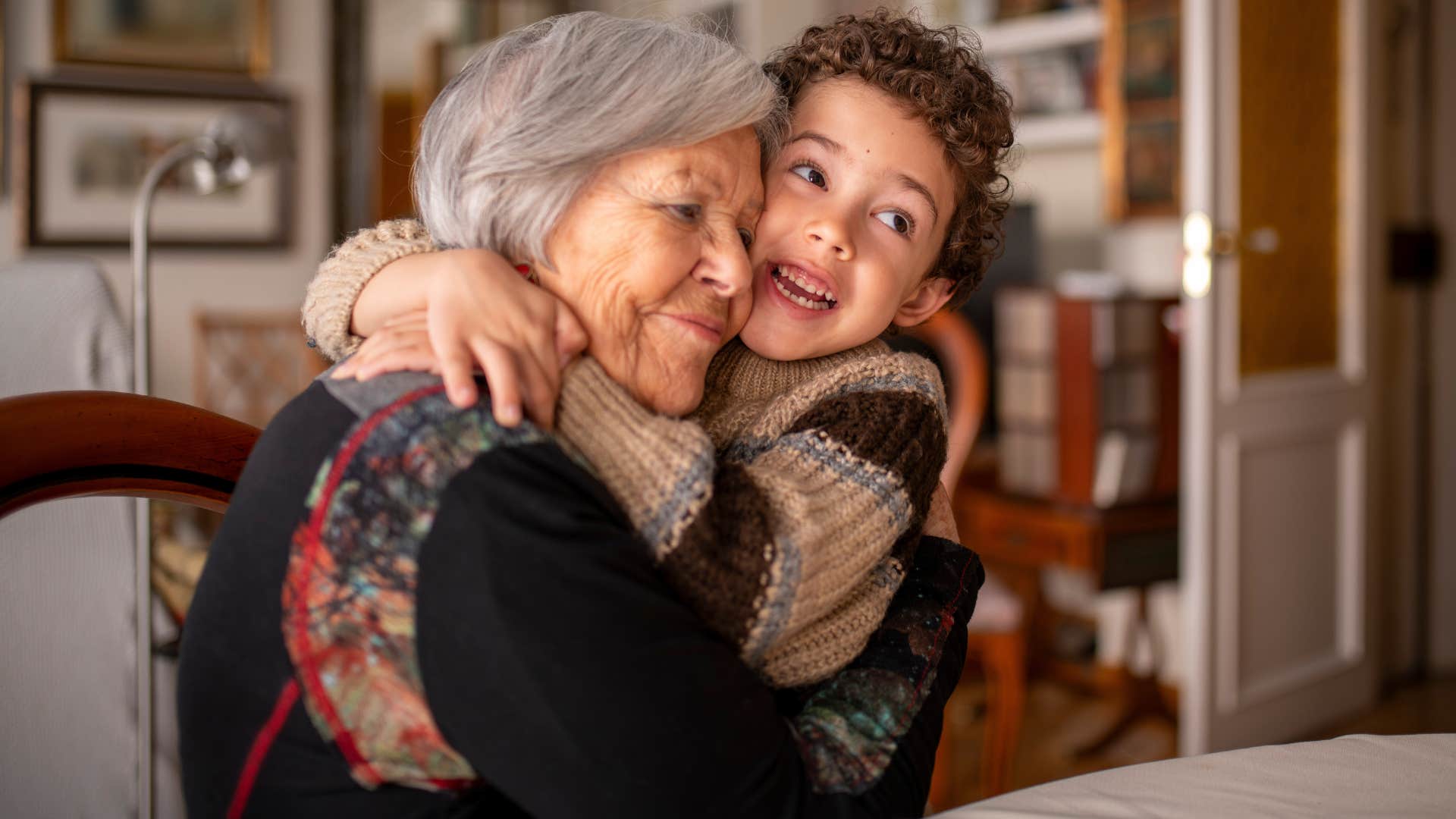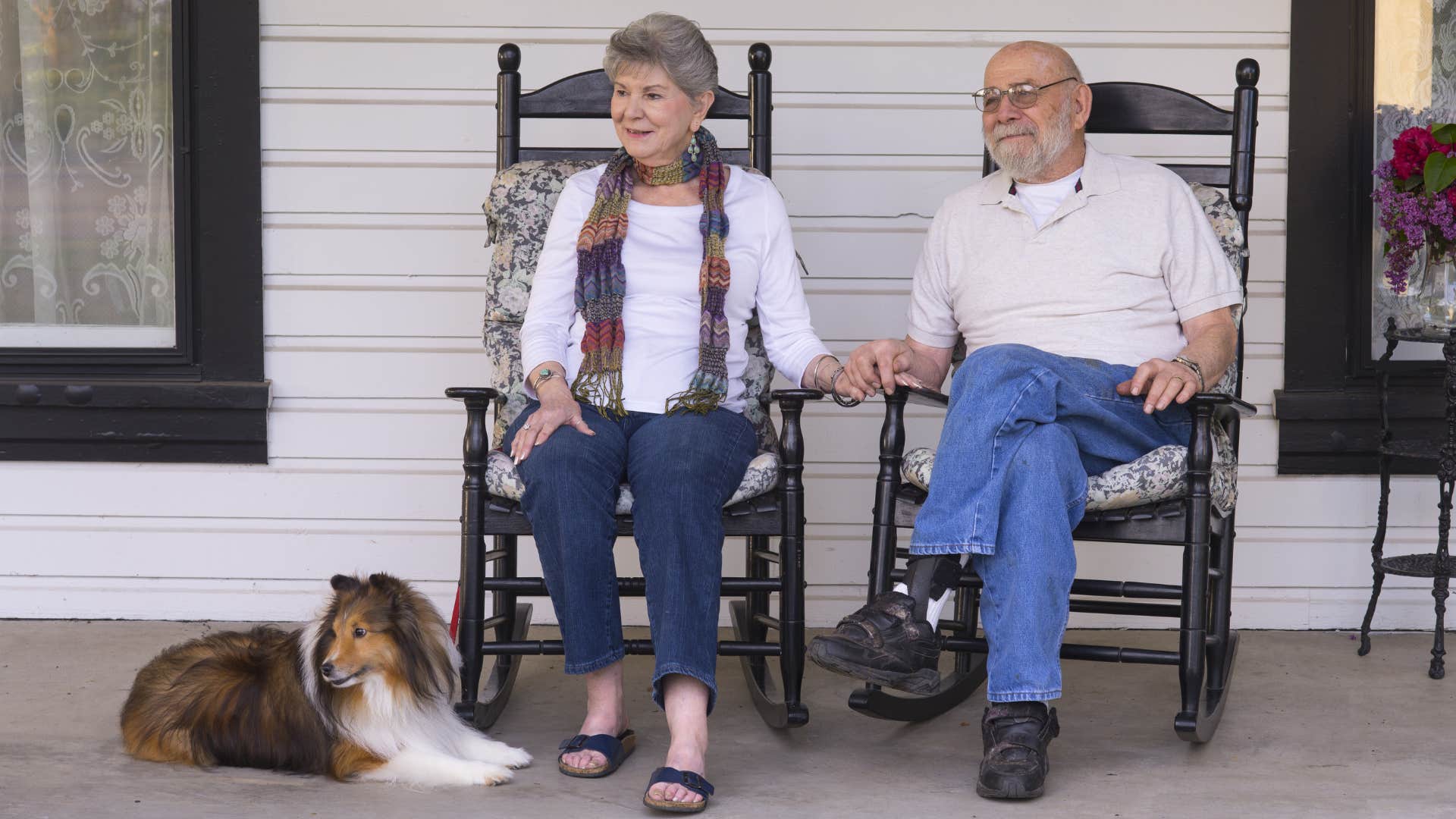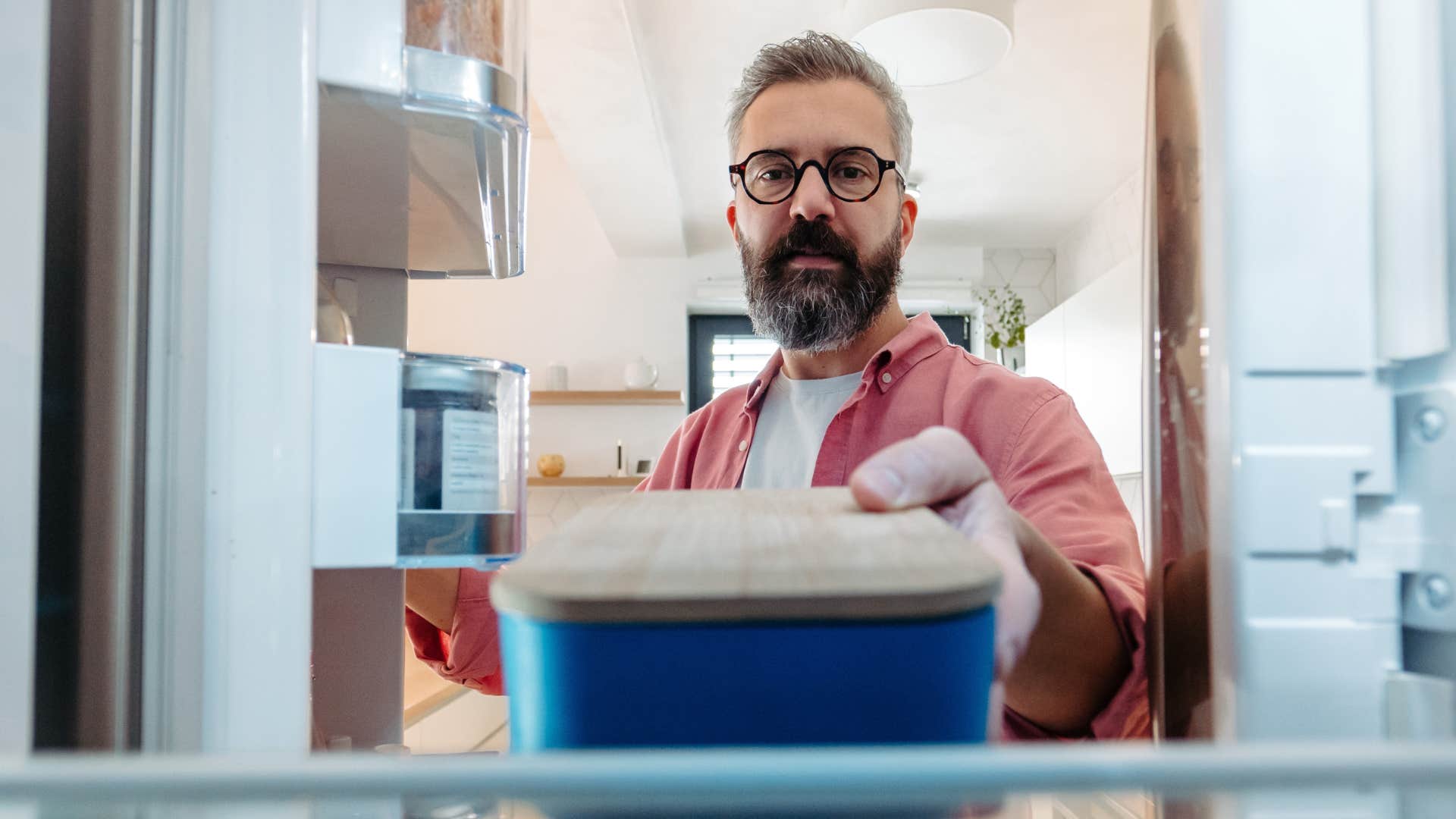People Who Grew Up In The South Usually Keep These 11 Things In Their Homes
Is Southern charm a real thing?
 Prostock-studio | Shutterstock
Prostock-studio | Shutterstock We've all heard about "Southern hospitality" and "charm," but what do these things really mean when it comes to a person's daily life and routine? Most of the practices they engage in on an everyday basis are rooted in secure Southern values — things like family time, tradition, religious beliefs, food and beverages, and connection.
From porch furniture to family photos, people who grew up in the South usually keep these things in their homes. Even if they've moved away or left their families in another state, this kind of charm and hospitality doesn't simply go away — it's rooted in their personality and everyday habits.
People who grew up in the South usually keep these 11 things in their homes
1. A pitcher of sweet tea
 Thomas Andreas | Shutterstock
Thomas Andreas | Shutterstock
Even if it seems small and innocent, there's a rich history and tradition behind Southern sweet tea, two phrases that have largely become synonymous with each other in modern times. That's why it's still so common in people's homes, even if they've moved away from their Southern states and families.
Whether there's a pitcher in the fridge or a fresh batch on their table while hosting meals, people who grew up in the South always keep these things in their homes. It's a taste of home, even when they're far away.
2. Tons of family photos
 Inside Creative House | Shutterstock
Inside Creative House | Shutterstock
The family values and sentimental nature of family bonds in the South are hard to overlook. There's an aura of connection in every heirloom sitting in someone's home or at every Sunday dinner they entertain. That's why people who grew up in the South usually keep family photos in their homes.
They remember seeing the gallery walls of professional family photos or new grandchildren in their parents and grandparents' homes growing up — always appreciating seeing everyone and having a secure place in their family's living space. Of course, they also benefit a great deal from these photos socially, mentally, and emotionally, like mental health counselor Jaclyn Gulotta suggests.
3. Mason jars
 New Africa | Shutterstock
New Africa | Shutterstock
According to a study from Southern Foodways Alliance, mason jars have a true cultural significance in the South — from food preservation to pickling trends in families, crafty projects, and practical drinking habits. Whether they're using them as home decor, still pickling fresh foods today, or simply using them to drink sweet tea from their fridge, people who grew up in the South usually keep these things in their homes.
While they've grown in popularity in other states for aesthetic reasons, they'll always be the foundation of dishware and a staple in many Southern homes and families.
4. College football memorabilia
 gpointstudio | Shutterstock
gpointstudio | Shutterstock
While the majority of Americans are relatively enthusiastic about sports, especially American football, the South leads the pack when it comes to fandom over college football teams. If you've seen college sorority videos on social media or football fans from schools like Alabama, LSU, and Tennessee, you know just how enthusiastic and widespread these fandoms truly are.
It's an integral part of Southern culture, like a study from San Jose State University argues, which is why people who grew up in the South typically still keep these things in their home — from jerseys for the game to memorabilia out on display in their common areas.
5. Family heirlooms
 Gregorio Reche | Shutterstock
Gregorio Reche | Shutterstock
While discourse online and social norms tend to portray "family values" in Southern states in a rigid and gendered way, the true nature of these values is more sentimental. People appreciate their families, prioritize quality time, and often lean on tradition — family dinners and family heirlooms — to feel connected with their family across generations.
Part of how people stay connected to their families and their legacies is by keeping and displaying family heirlooms — laced with memories, connection, and sentimentality from generations. Whether it's a fine china set, a dish cabinet, or old antique cars in the garage, people who grew up in the South usually keep these things in their homes.
6. A butter dish
 Pixel-Shot | Shutterstock
Pixel-Shot | Shutterstock
While many people believe that butter should always be stored in the fridge, it's actually perfectly safe — and usually easier to use at room temperature — when it's left in a butter dish or bell on the counter. Of course, this is a tradition most common in Southern states, where baking things like biscuits and using butter often are not just food habits, but cultural traditions.
So, even if you don't live in the South, maybe this is a sign that you should start leaving your butter on the counter — it's not just because it's a tradition, but because it's a convenience.
7. A collection of casserole dishes
 ViDI Studio | Shutterstock
ViDI Studio | Shutterstock
There are several factors that play into "Southern hospitality," according to a study from Tourism Recreation Research: kindness and openness, general hospitality, veneers and facades and, arguably the most important, food and beverage. That's why casserole dishes are some of the things people who grew up in the South always keep in their homes.
Whether it's hosting a family meal, bringing a casserole to church, or dropping off a dish at someone's house who needs support, having a million casserole dishes is a huge part of a Southern person's kitchen.
8. Religious decor
 Pixel-Shot | Shutterstock
Pixel-Shot | Shutterstock
According to a study from Pew Research Center, Southern states by far make up the most concentrated religious region in the United States. Not only do their lifestyles and routines revolve around organized religious practices like going to church or praying before meals at home, but they also tend to have decorations and sentimental items scattered around their homes.
Whether it's jewelry, religious texts like the Bible, tons of religiously tailored holiday decorations, artwork, or religious signs, people who grew up in the South usually keep these things in their homes.
9. Porch furniture
 Jamie Hooper | Shutterstock
Jamie Hooper | Shutterstock
Southern hospitality often extends to seemingly simple interactions with neighbors or strangers, which is why it's not entirely surprising that things like porch furniture, which is both a tradition and a means for connection, are so common in Southern people's homes.
It's a "Southern way of life" to be friendly with your neighbors and to build communities with the people in your neighborhood, which is why comfortable porch furniture, outside decorations, and comfortable rugs are all so commonly prioritized in these families. Compared to urban areas, where, ironically, the population density is much larger, Southern families always make an effort to meet and converse with their neighbors and friends.
10. Garage freezers
 Halfpoint | Shutterstock
Halfpoint | Shutterstock
Whether they have an extra chest freezer or a freezer in their garage, people who grew up in the South usually keep these things in their homes. Considering these Southern states often hunt and acquire fresh meat more often than their Northern counterparts, it's not surprising that they need more freezer space for storage throughout the year.
So, if you grew up in a Southern household, you've seen an extra freezer or two in the home — even if it stores things like beverages for garage hangouts instead of frozen foods.
11. Handmade quilts
 Ground Picture | Shutterstock
Ground Picture | Shutterstock
Especially for Black Southern Americans and their families, quilts aren't just a piece of home decor — they're a preservation of family history and tradition, according to scholar Dr. Carolyn Mazloomi in an interview with the Smithsonian. Especially in the South, where many Black families adamantly preserve and protect their rich history, it's these seemingly small things in people's homes that hold a lot of familial and cultural significance.
So, if you see handmade quilts, made from fabrics and old clothing in a Southern person's home, it's more profound than it seems — it's often an intentional, sentimental, and rich cultural item.
Zayda Slabbekoorn is a senior editorial strategist with a bachelor's degree in social relations & policy and gender studies who focuses on psychology, relationships, self-help, and human interest stories.

